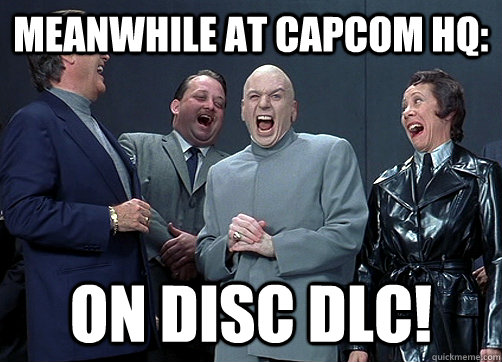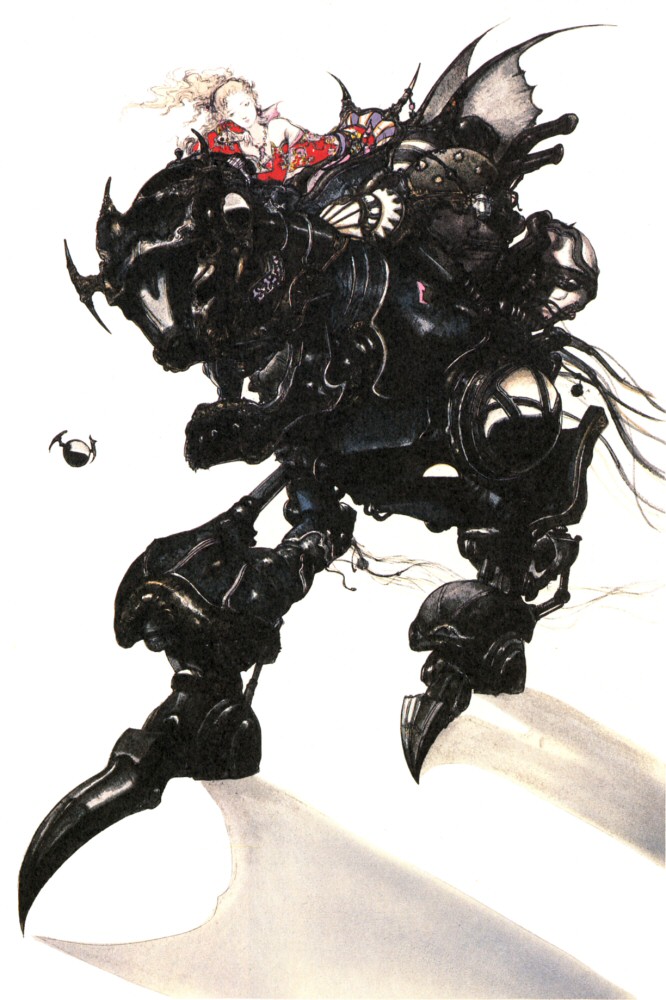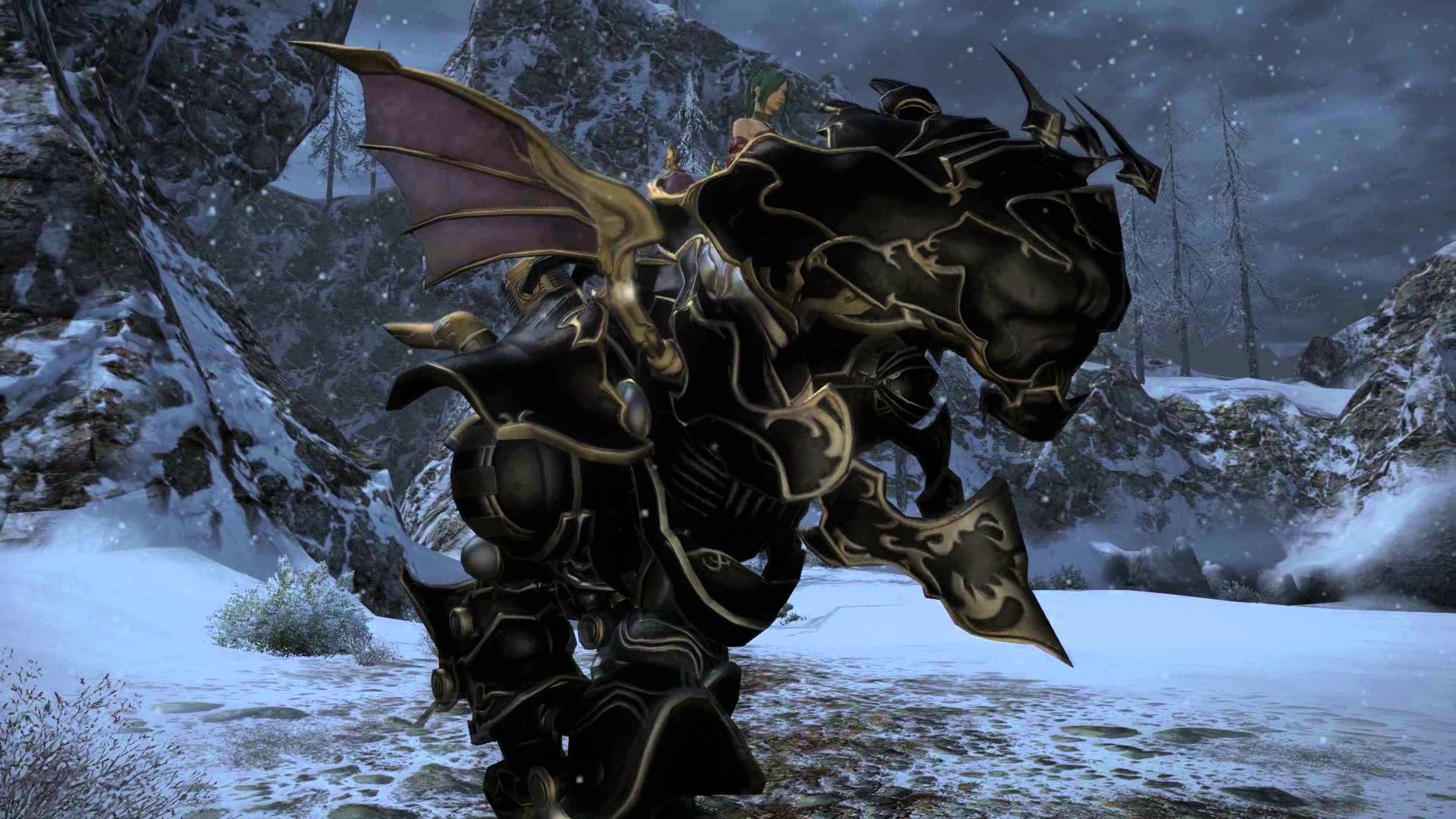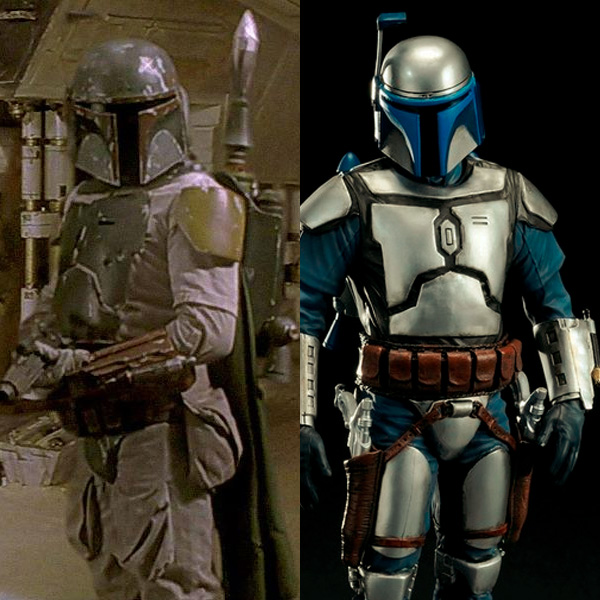"Clothes Make the Man" as the saying goes.
Spinning off of the Overwatch Summer Games thread, and listening to many debates about the ethics or value of encouraging F2P mechanics in $60 retail games, I have lately been a bit... alarmed, I guess... at the number of gamers - here and throughout other forums - that have become incredibly dismissive of extra and optional skins, armor, or character skins, or other content, and bizarrely defensive of the companies increasingly encroaching on games with more and more brazen F2P mechanics and whale-hunting maneuvers.
This is something that is starting to make me feel OLD, because I feel like I've been around when this argument and this fight was just starting... and I've now seen how detrimental and cynical it has become.
It was ten years ago that I believe the issue of optional cosmetics and the ugly underbelly of DLC really first reared its once-so-promising head. The year was 2006 and Bethesda was riding high on the success of The Elder Scrolls IV: Oblivion and touting the virtues of DLC - a world of infinite possibilities and endless expansions and rainbows and kitties and everlasting gumdrops. And I still remember the backlash when THIS abomination dropped onto the marketplace for the sum of $2.50:
It's almost quaint now to look back at the infamous "horse armor", which became gamer short-hand for useless and overpriced DLC, and see how much it pales with what developers got away with later on. But, for those old enough to remember and for those too young to have been there, it kicked up one helluva storm. Professional websites and game journalists at the time took Bethseda to task for overcharging for simple in-game cosmetic items. It was widely and pervasively mocked and ridiculed, with many even saying that if Bethesda got away with it, it would open the doors wide open for other developers to start charging and overcharging real-world money for banal yet optional content. This was, at one point, HUGE.
And others in the game industry sounded off:
Some argued that it was optional, while others argued that it being optional wasn't the point; it was that the value was disproportionate to the price, and if you gave a company an inch, they'd take it a mile.
... Well, Bethesda didn't just get away with it, they laid out a red carpet for every developer to follow. "Horse Armor" was their #9 best-selling DLC, and its infamous "success" slowly started an uneven slide towards more and more companies locking "optional" cosmetics and content behind DLC paywalls.
Now, here's something a younger generation might not understand, or an older one might have become numb to over the past decade... "Cosmetics" not only used to matter a lot to many gamers, they often were some of the core reasons many of us stuck around and played these games in the first place. In those arcade-era days, where home console ports couldn't rely on quarters to get you by, stuffing those games with collectibles and unlockables was what ensured players kept coming back for more long after they'd seen and done everything.
For single-player fans, especially, a surplus of unlockables like skins, characters, and costumes were godsends that added replayability and value to these games. "Horse Armor" slowly encroached on how these developers made and marketed their games. I once spent HOURS playing and unlocking all the costumes in Dead or Alive 2 Ultimate...
... Or tracking down all the fun and goofy alternate costumes in Mortal Kombat: Deadly Alliance in the Krypt...
I watched the argument rise and fall against Horse Armor, against costumes in SFIV being locked behind paywalls, then entire characters, then cheat codes, then versus modes, then color picker options, then voice acting, then difficulty modes, and even the actual ENDING of video games (90% of those examples may have been from Capcom...)
People who say "cosmetics" don't matter and that they're optional seem to exist in some world where a visual identity of a game somehow is unimportant. Sure, gameplay still trumps anything else, but visuals are a HUGE part of a game and help shape its identity. Cosmetics and visuals have influence and power, and it's no surprise many studios use iconic imagery and visuals - simple "cosmetics" - to sell newer games to players.
Nostalgia is powerful, and every one of you has moments of your youth and childhood burned into your brain and etched into your memories. Movies and TV shows exploit that hard for every sequel, remake, or reboot they churn out, relying hard on the iconography and "cosmetics" that constitute those films you love, because they want you to see the new film and see and think of those warm feelings you have for the originals. Many of us have probably even been tricked into seeing something we hated because it had something visually similar to something else we loved.
When it comes to games, visuals are part of the package. COSMETICS are part of the package. They're not divorced from gameplay or music or the story; they're part of the whole experience. After all, what I'm looking at constitutes some of the most important visual feedback a game can give me, and I'd like to think MOST of us care about the appearance of a game and want games to look nice to our eyes, if not on a technical level than at least on an artistic one.
I won't go into detail about how so many unlockables have just become something companies lock behind microtransactions and paywalls (aka, "a history of Capcom DLC schemes"), but cosmetics and costumes were once considered prime gamer "content". Technically, EVERYTHING is "optional" - nobody is forcing anybody to play a game a certain way or as a certain character or to even play the game at all - and determining how your character looks, what is the best "look" for your favorite character and customizing them to your preferred appearance, isn't something that many people feel is unimportant. Character and player customization options are REALLY important to many people...
Sure, the most important thing is how a game plays. It always will be. But the cosmetics of characters matter greatly to many people, and if they don't matter to you personally, then just sit back and stay out of it instead of jumping to the defense of the big buddy corporation who is totally not putting microtransactions in their games hoping you DON'T buy them or altering their games in a way that your in-game currency can't buy certain cosmetics so the easiest way to get a costume you like is to keep gambling real-world money with no certainty you'll even get that costume you really want to have, but again, the publisher loves you and totally promises they're free, sort of, because it's really either time or money and we know both of those are practically limitless in life, so what's the big deal, right?
Really, the biggest threat to gaming, in the past ten years I've watch it unfold, is player apathy and the slow tolerance of accepted business practices that exploit players, whether it started with horse armor or grew to online passes or pre-order bonuses or retailer exclusive pre-order bonuses or retailer exclusive day one pre-order bonuses or retailer exclusive day one collector's edition-only pre-order bonuses to season passes to on-disc DLC to microtransactions to MACROtransactions to requiring spreadsheets to figure out what in the hell we're actually even getting in our games anymore.
All this stuff? This "optional" stuff that doesn't affect gameplay? That's stuff we just used to call "content". Is music optional? Is color optional? Textures? Are all sound effects really necessary? How much "optional" content would you be willing to take away before you'd have a problem?
Every part of a game - including DLC - factors into the ultimate package and experience of a game. Every visual, every sound effect, every animation, everything big and small, working together to make sure your gaming experience is the best it can be, to draw you in and keep you there. Cosmetics? Those are part of that visual experience, and they tap into our innate delight at being able to customize our characters to fit our own personalities and motifs and preferences. They IMPROVE OUR EXPERIENCES and for many players they hold a great deal of value, often just as much as gameplay or music or any other facet of a game.
... Holy crap. Anyone still with me? I promise I'm nearly done.
The events of Overwatch left me troubled because, even if cosmetics are "optional", the more important thing was Blizzard altered the terms and promises to their fans that "any costume could be unlocked" through the in-game currency you own, reneging on the way they marketed and distributed the content to players. And many, many players complained and many, many players went "so? They're just cosmetics. Gameplay is all that matters". And I don't understand that, nor do I personally accept it. It's an example where time and effort can legitimately FAIL to earn you the content through gameplay measures, putting you entirely at the mercy of RNG gods and making real-money gambling the safest and most efficient option.
It wasn't okay when other developers did it over the past ten years - and we sure as hell raised a stink about it to EA and Activision and Ubisoft and Capcom and Konami over the years - and I don't see any reason why anyone should get a pass on it if they ever did it. Not Nintendo, not Valve, not CD Projekt RED, not Blizzard. No matter how much you love that company or their work. Apathy and apologists have created a spiraling fracture of game design, and there hasn't been one case, not ONE, where a company getting away with anti-consumer or greedy business practices hasn't resulted in a line-up of other developers eager to do the same because why the hell not? Players rolled over and took it. Hell, many even DEFENDED these practices as if the merest hint of criticism was tantamount to personally insulting the players themselves. It's business 101 on how to exploit a customer base; to eventually wear them down to the point of apathy and acceptance, because they'll ALWAYS go as far as the customers will let them.
"Cosmetics Matter". They always have, and for many I think they always will.
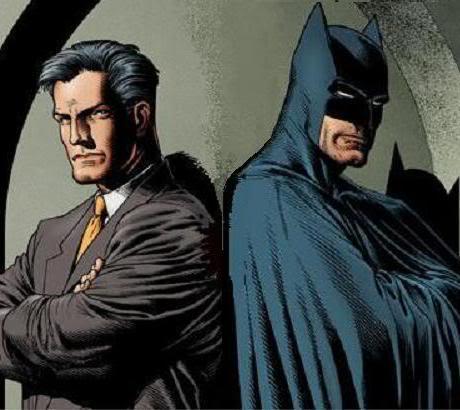
(None of you wore your "Bruce Wayne" costume on Halloween as kids...)
Spinning off of the Overwatch Summer Games thread, and listening to many debates about the ethics or value of encouraging F2P mechanics in $60 retail games, I have lately been a bit... alarmed, I guess... at the number of gamers - here and throughout other forums - that have become incredibly dismissive of extra and optional skins, armor, or character skins, or other content, and bizarrely defensive of the companies increasingly encroaching on games with more and more brazen F2P mechanics and whale-hunting maneuvers.
This is something that is starting to make me feel OLD, because I feel like I've been around when this argument and this fight was just starting... and I've now seen how detrimental and cynical it has become.
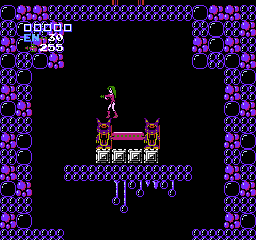
(Behold! An alternate costume that rocked the industry AND didn't cost $2.99 extra!)
It was ten years ago that I believe the issue of optional cosmetics and the ugly underbelly of DLC really first reared its once-so-promising head. The year was 2006 and Bethesda was riding high on the success of The Elder Scrolls IV: Oblivion and touting the virtues of DLC - a world of infinite possibilities and endless expansions and rainbows and kitties and everlasting gumdrops. And I still remember the backlash when THIS abomination dropped onto the marketplace for the sum of $2.50:
It's almost quaint now to look back at the infamous "horse armor", which became gamer short-hand for useless and overpriced DLC, and see how much it pales with what developers got away with later on. But, for those old enough to remember and for those too young to have been there, it kicked up one helluva storm. Professional websites and game journalists at the time took Bethseda to task for overcharging for simple in-game cosmetic items. It was widely and pervasively mocked and ridiculed, with many even saying that if Bethesda got away with it, it would open the doors wide open for other developers to start charging and overcharging real-world money for banal yet optional content. This was, at one point, HUGE.
And others in the game industry sounded off:
Pete Hines: “You can look at something like Horse Armor pack as an example. The reaction to Horse Armor wasn’t just about price. It was more of a lesson: when you’re going to ask somebody to pay X, do they feel like they’re getting Y in exchange? If they don’t feel like they’re getting their money’s worth, they’re going to bitch."
Some argued that it was optional, while others argued that it being optional wasn't the point; it was that the value was disproportionate to the price, and if you gave a company an inch, they'd take it a mile.
... Well, Bethesda didn't just get away with it, they laid out a red carpet for every developer to follow. "Horse Armor" was their #9 best-selling DLC, and its infamous "success" slowly started an uneven slide towards more and more companies locking "optional" cosmetics and content behind DLC paywalls.

("DLC Quest" started as a joke, but it's pretty much the accepted norm these days)
Now, here's something a younger generation might not understand, or an older one might have become numb to over the past decade... "Cosmetics" not only used to matter a lot to many gamers, they often were some of the core reasons many of us stuck around and played these games in the first place. In those arcade-era days, where home console ports couldn't rely on quarters to get you by, stuffing those games with collectibles and unlockables was what ensured players kept coming back for more long after they'd seen and done everything.
For single-player fans, especially, a surplus of unlockables like skins, characters, and costumes were godsends that added replayability and value to these games. "Horse Armor" slowly encroached on how these developers made and marketed their games. I once spent HOURS playing and unlocking all the costumes in Dead or Alive 2 Ultimate...


(I used to be able to EARN my filthy fetish outfits, you scoundrels!)
... Or tracking down all the fun and goofy alternate costumes in Mortal Kombat: Deadly Alliance in the Krypt...
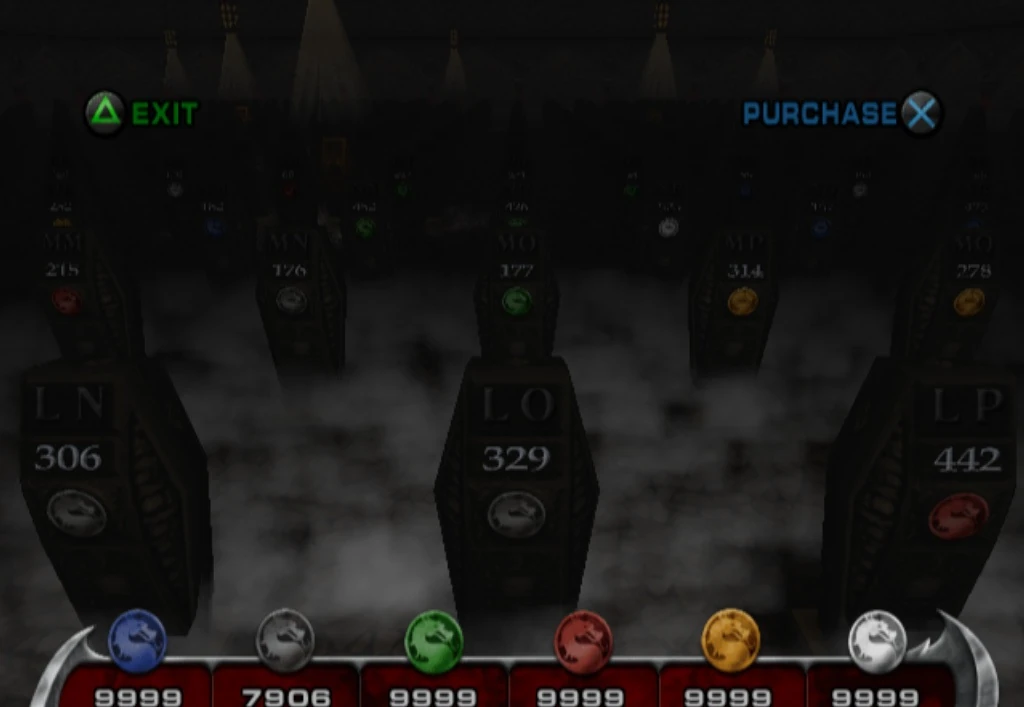

(or you can just f***ing pay $20 to unlock it, and buy some "easy fatalities" while you're at it)
I watched the argument rise and fall against Horse Armor, against costumes in SFIV being locked behind paywalls, then entire characters, then cheat codes, then versus modes, then color picker options, then voice acting, then difficulty modes, and even the actual ENDING of video games (90% of those examples may have been from Capcom...)
(And there were people defending Capcom for every single insane thing they tried charging for...)
People who say "cosmetics" don't matter and that they're optional seem to exist in some world where a visual identity of a game somehow is unimportant. Sure, gameplay still trumps anything else, but visuals are a HUGE part of a game and help shape its identity. Cosmetics and visuals have influence and power, and it's no surprise many studios use iconic imagery and visuals - simple "cosmetics" - to sell newer games to players.
Nostalgia is powerful, and every one of you has moments of your youth and childhood burned into your brain and etched into your memories. Movies and TV shows exploit that hard for every sequel, remake, or reboot they churn out, relying hard on the iconography and "cosmetics" that constitute those films you love, because they want you to see the new film and see and think of those warm feelings you have for the originals. Many of us have probably even been tricked into seeing something we hated because it had something visually similar to something else we loved.
("It's like poetry. It sort of rhymes.")
When it comes to games, visuals are part of the package. COSMETICS are part of the package. They're not divorced from gameplay or music or the story; they're part of the whole experience. After all, what I'm looking at constitutes some of the most important visual feedback a game can give me, and I'd like to think MOST of us care about the appearance of a game and want games to look nice to our eyes, if not on a technical level than at least on an artistic one.
("Cosmetics aren't important and don't matter!"... and yet I've read so, SOOO much bitching about the aesthetics and cosmetics of certain games over the years...)
I won't go into detail about how so many unlockables have just become something companies lock behind microtransactions and paywalls (aka, "a history of Capcom DLC schemes"), but cosmetics and costumes were once considered prime gamer "content". Technically, EVERYTHING is "optional" - nobody is forcing anybody to play a game a certain way or as a certain character or to even play the game at all - and determining how your character looks, what is the best "look" for your favorite character and customizing them to your preferred appearance, isn't something that many people feel is unimportant. Character and player customization options are REALLY important to many people...

(Otherwise, we wouldn't spend over an hour in the character creation screens getting Commander Shepard's facial hair JUST right...)
Sure, the most important thing is how a game plays. It always will be. But the cosmetics of characters matter greatly to many people, and if they don't matter to you personally, then just sit back and stay out of it instead of jumping to the defense of the big buddy corporation who is totally not putting microtransactions in their games hoping you DON'T buy them or altering their games in a way that your in-game currency can't buy certain cosmetics so the easiest way to get a costume you like is to keep gambling real-world money with no certainty you'll even get that costume you really want to have, but again, the publisher loves you and totally promises they're free, sort of, because it's really either time or money and we know both of those are practically limitless in life, so what's the big deal, right?

(I think you can tell if I'm being sarcastic or not...)
Really, the biggest threat to gaming, in the past ten years I've watch it unfold, is player apathy and the slow tolerance of accepted business practices that exploit players, whether it started with horse armor or grew to online passes or pre-order bonuses or retailer exclusive pre-order bonuses or retailer exclusive day one pre-order bonuses or retailer exclusive day one collector's edition-only pre-order bonuses to season passes to on-disc DLC to microtransactions to MACROtransactions to requiring spreadsheets to figure out what in the hell we're actually even getting in our games anymore.

(I still have no idea what I ended up with...)
All this stuff? This "optional" stuff that doesn't affect gameplay? That's stuff we just used to call "content". Is music optional? Is color optional? Textures? Are all sound effects really necessary? How much "optional" content would you be willing to take away before you'd have a problem?

(I present to you "Overwatch: Just the Essentials" edition. The gameplay is great though!)
Every part of a game - including DLC - factors into the ultimate package and experience of a game. Every visual, every sound effect, every animation, everything big and small, working together to make sure your gaming experience is the best it can be, to draw you in and keep you there. Cosmetics? Those are part of that visual experience, and they tap into our innate delight at being able to customize our characters to fit our own personalities and motifs and preferences. They IMPROVE OUR EXPERIENCES and for many players they hold a great deal of value, often just as much as gameplay or music or any other facet of a game.
... Holy crap. Anyone still with me? I promise I'm nearly done.
The events of Overwatch left me troubled because, even if cosmetics are "optional", the more important thing was Blizzard altered the terms and promises to their fans that "any costume could be unlocked" through the in-game currency you own, reneging on the way they marketed and distributed the content to players. And many, many players complained and many, many players went "so? They're just cosmetics. Gameplay is all that matters". And I don't understand that, nor do I personally accept it. It's an example where time and effort can legitimately FAIL to earn you the content through gameplay measures, putting you entirely at the mercy of RNG gods and making real-money gambling the safest and most efficient option.
It wasn't okay when other developers did it over the past ten years - and we sure as hell raised a stink about it to EA and Activision and Ubisoft and Capcom and Konami over the years - and I don't see any reason why anyone should get a pass on it if they ever did it. Not Nintendo, not Valve, not CD Projekt RED, not Blizzard. No matter how much you love that company or their work. Apathy and apologists have created a spiraling fracture of game design, and there hasn't been one case, not ONE, where a company getting away with anti-consumer or greedy business practices hasn't resulted in a line-up of other developers eager to do the same because why the hell not? Players rolled over and took it. Hell, many even DEFENDED these practices as if the merest hint of criticism was tantamount to personally insulting the players themselves. It's business 101 on how to exploit a customer base; to eventually wear them down to the point of apathy and acceptance, because they'll ALWAYS go as far as the customers will let them.
"Cosmetics Matter". They always have, and for many I think they always will.

(I don't want to live in a world where Sailor Shorts Chris Redfield "doesn't matter".)


